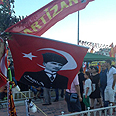
Police crush barricades in Istanbul square
Officers fire tear gas, rubber bullets, water cannons in clashes with protestors in Taksim Square; Turkish PM Erdogan: No more tolerance, none will get away
Hundreds of riot police overran improvised barricades at Istanbul's Taksim Square on Tuesday, firing tear gas, rubber bullets and water cannons in running battles with protesters who have been occupying the area for more than a week.
The police raid, which came on the 12th day of nationwide anti-government protests, sparked clashes with groups of demonstrators well into the afternoon. Many other protesters fled into the adjacent Gezi Park, where hundreds have been camping out to stop developers from cutting down trees in the park.
Related stories:
- Turkish riot police clash with protesters
- Turkish opposition leader criticizes Erdogan
- Ankara riots resume; Erdogan: My patience is limited
As police moved in, bulldozers began demolishing the barricades and the makeshift shelters.
A peaceful demonstration against the park's redevelopment has morphed into a test of Prime Minister
Recep Tayyip Erdogan's authority and a rejection of what some see as his autocratic ways.
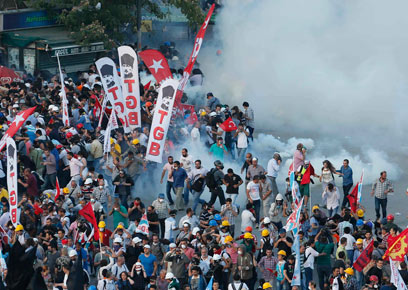
Clashes in Istanbul, Tuesday (Photo: Reuters)
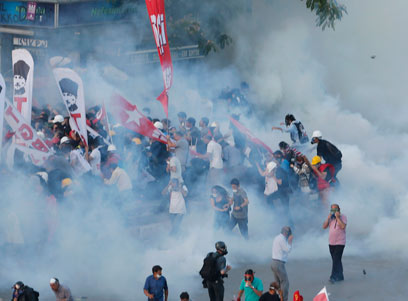
(Photo: Reuters)
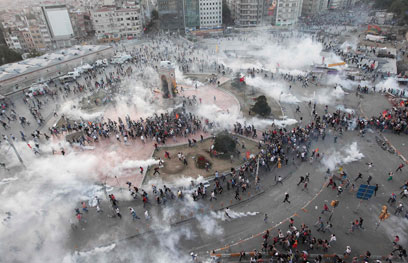
(Photo: Reuters)
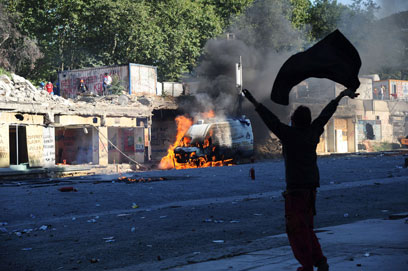
(Photo: AFP)
Erdogan, however, made it clear Tuesday that he had come to the end of his patience with the protesters, whom he accused of sullying Turkey's image abroad.
"To those who ... are at Taksim and elsewhere taking part in the demonstrations with sincere feelings, I call on you to leave those places and to end these incidents, and I send you my love. But for those who want to continue with the incidents I say: `It's over.' As of now we have no tolerance for them," Erdogan said, speaking in the capital, Ankara, as the raid was taking place.
"Not only will we end the actions, we will be at the necks of the provocateurs and terrorists, and no one will get away with it," he added.
The unrest - which has spread to 78 cities across Turkey - has been inspired in part by what some see as Erdogan's increasingly authoritarian style of governing and his perceived attempts to impose a religious and conservative lifestyle in a country with secular laws.
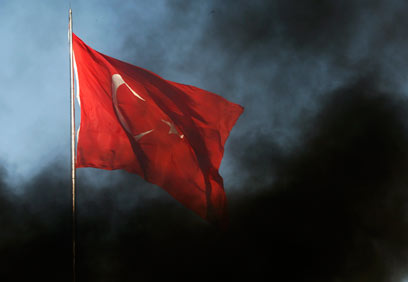
(Photo: Reuters)
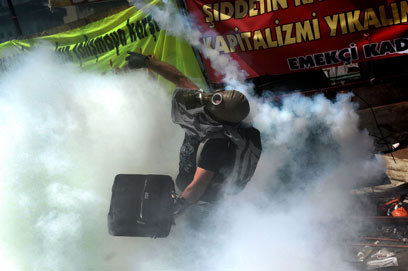
(Photo: AFP)
Erdogan, a devout Muslim, says he is committed to Turkey's secular laws and denies charges of autocracy. Yet as he defended his tough stance, he gave critics little hope of a shift in his position.
"Were we supposed to kneel before them and say please remove your pieces of rags? They can call me harsh, but this Tayyip Erdogan won't change," he said.
Erdogan was referring to the banners and posters that activists had hung from a building and a monument at Taksim Square, which police removed.
Erdogan spoke before a meeting with President Abdullah Gul to discuss the protests, their first since they erupted. Contrary to Erdogan, Gul has defended people's rights to express democratic rights.
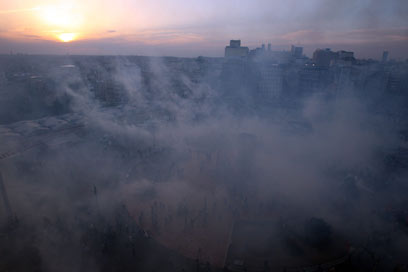
(Photo: AP)
By afternoon, the clashes had extended to the very edge of Gezi Park, with acrid tear gas covering its sides, even though authorities had promised not to go into the park. Several people were rushed on stretchers to a first aid station manned by protesters before being taken to ambulances. Others were carried, overcome by tear gas.
Selin Akuner, a volunteer at a makeshift infirmary at the park, said some 300 people had sought treatment, mostly for the effects of tear gas. Nearly 50 people had been hit by rubber bullets or gas canisters, 12 had head traumas and about eight had injured legs or arms, she said. The governor's office said one demonstrator and one police officer were hospitalized.
The Turkish Human Rights Foundation on Tuesday raised the number of deaths in more than a week of protests to four. It said a man who had died of a heart attack days ago had been exposed to "too much" tear gas. Two demonstrators and a policeman were also killed and some 5,000 protesters have been treated for injuries or the effects of tear gas. The government says 600 police officers have also been injured.
- Receive Ynetnews updates directly to your desktop










